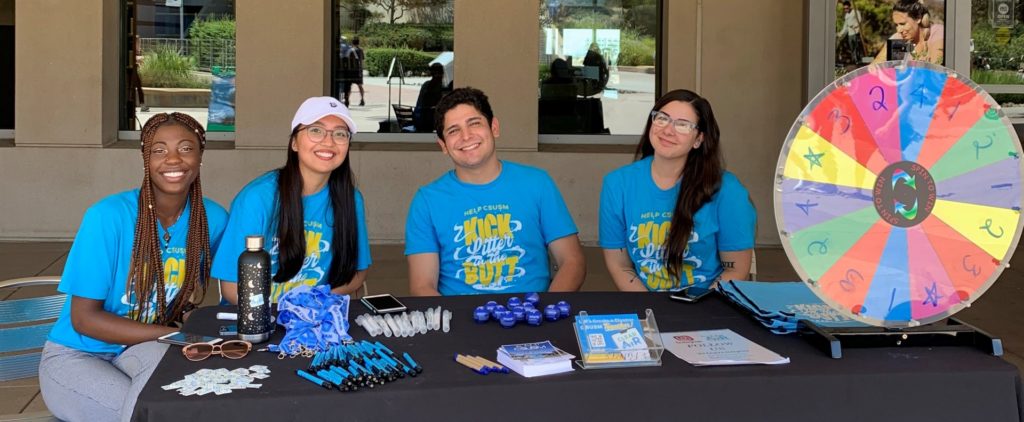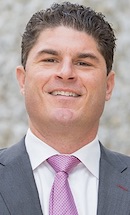Daily Business Report: Tuesday, Feb. 1, 2022
How well do drivers fare
after smoking cannabis?
By Scott LaFee
The steady rise in the use of cannabis — 18 states have legalized recreational use, 13 have decriminalized its use and 36 have medical cannabis laws — has provoked myriad questions and concerns about public health implications, including how cannabis may affect the abilities, real and perceived, of drivers under the influence.
In a novel, two-year randomized trial, conducted at the Center for Medicinal Cannabis Research (CMCR) at University of California San Diego School of Medicine, researchers recruited 191 regular cannabis users to partake of cannabis containing different levels of delta-9-tetrahydrocannabinol (THC), the psychoactive compound in cannabis or a placebo immediately before a series of driving simulation tests over several hours.
The findings are published in the January 26, 2022 online issue of JAMA Psychiatry.
Compared to participants who took the placebo, the THC group (who had smoked a cannabis cigarette with either 5.9 percent or 13.4 percent THC as they would “do at home to get high”) displayed significantly diminished ability on a Composite Drive Score (CDS) that assessed key simulated driving variables, such as swerving in lane, responding to divided attention tasks and following a lead car. However, not all individuals displayed significantly diminished driving skills compared to the placebo group; researchers said approximately 50 percent could be described as “impaired.”
TOP PHOTO: Simulator measured common driving variables, such as swerving in lane, responding to divided attention tasks and following a lead car.

Gavin Newsom was the face of legal cannabis
in California. Can he fix its problems?
By Alexei Koseff | CalMatters
When California voters legalized marijuana for recreational use in November 2016, it was also a victory for Gavin Newsom, who spent months traveling the state as the face of the campaign. At an election night party at a San Francisco nightclub, the then-lieutenant governor celebrated this “point of pride,” telling attendees that California had sent a “message powerfully to the rest of the nation.”
It was an important resume-building moment for Newsom, already deep into his first run for governor, who during decades in office has put himself at the forefront of political change. In a profile in Billboard magazine a few months later, he acknowledged that his legacy and that of Proposition 64, the legalization measure, were now tied together:
“Put it this way: Everything that goes wrong, you’re looking at the poster child.”
Five years later, Newsom is governor, and farmers, dispensary owners and other advocates are calling on him to rescue a legal market they say has been pushed to the brink of collapse by a steep drop in prices — and the inattention of a man who was once its most prominent proponent.
“He championed our message and he rode our coattails all the way to the top,” said Michael “Mikey” Steinmetz, co-founder of Flow Cannabis Co., a manufacturer and distributor. “We feel that he has turned his back in some capacity.”
The cannabis industry’s appeal for help is aggressively aimed at the heap of taxes that put it at a disadvantage with the robust illicit market in California.Steinmetz has proposed a boycott of the state’s cultivation tax unless there is financial relief in the upcoming state budget.
San Diego’s life science market
enjoyed a record year in 2021
By Kelsi Maree Borland
Last year was a record year for the San Diego life science market, which recorded 1.1 million square feet of leasing activity in the fourth quarter alone.
The market sector recorded 34 percent rent growth and more than 1 million square feet of leasing activity in both the third and fourth quarter, according to the fourth quarter report from JLL.
In 2021, there were 139 life science leases completed in the San Diego market, representing a total of four million square feet, a 51 percent increase in transactions and an 80 percent increase in square footage from 2020.
In the fourth quarter, life science leasing activity totaled 1.2 million square feet in 33 leases and representing nearly 75,000 square feet of absorption. It was the second consecutive quarter where leasing activity surpasses 1 million square feet. While leasing activity was down a nominal 3 percent quarter-over-quarter, it was up a staggering 155 percent year-over-year.
The leasing activity pushed the vacancy rate down to 3.1 percent, a record low for the market and a 40 basis point decrease from the third quarter and a 240 basis point decline from the same time last year. Direct availability is 2.4 percent while sublease availability ended the quarter at 0.7 percent.

Cal State San Marcos wins grant to train
Students in tobacco-related research
Cal State San Marcos has received a grant of $1.3 million from a state agency to train students in research that will help them reduce tobacco-related disease in their communities.
The four-year grant funded by the California Tobacco Related Disease Research Program is a partnership with UC San Diego. It’s called the CSUSM/UCSD Smoke and Vape Free Scholars Initiative Program for Reducing Tobacco Disease in Diverse Communities (SVFSIP).
The training opportunity is tailored to students from racial/ethnic minoritized, low-income or LGBTQ+ groups, the same populations that studies show are disproportionately targeted by tobacco companies and affected by tobacco-related disease.
Pulvers procured the grant along with CSUSM kinesiology professor Richard Armenta. Pulvers will coordinate the administrative functions of the program, while Armenta will recruit prospective students and support them during their time in the program.
The principal investigator from UCSD is Dennis Trinidad, a professor of family medicine and public health who previously has collaborated with both Pulvers and Armenta.

Northrop Grumman-built MQ-8C Fire Scout
Makes operational deployment with Navy
Northrop Grumman Corporation’s MQ-8C Fire Scout, the U.S. Navy’s next generation ship-based autonomous helicopter system, deployed operationally Dec. 14 with Helicopter Sea Combat Squadron 22, Detachment 5 aboard USS Milwaukee.
“This is a significant milestone in the MQ-8C Fire Scout program,” said Capt. Eric Soderberg, U.S. Navy. “The transition from the MQ-8B to the MQ-8C Fire Scout has brought improved sensors and more than doubles the on-station endurance. Advances in Fire Scout’s capabilities further our successful integration of unmanned platforms at sea and the Navy and Marine Corps unmanned campaign plan.”
Matthews Real Estate Investment Services
Hires Matt LoPiccolo as first vice president
Matthews Real Estate Investment Services, a commercial real estate investment services and technology firm, announces the appointment of Matt LoPiccolo as first vice president.
Most recently positioned as first vice president of CBRE’s Capital Markets Retail Division, LoPiccolo brings over 15 years of commercial real estate experience and Southern California market expertise to Matthews.
LoPiccolo will focus on retail investment sales, with an emphasis on shopping centers and single tenant net lease properties in the San Diego MSA.
Prior to CBRE, LoPiccolo worked as director of National Retail Group at Marcus & Millichap before being promoted to first vice president of the brokerage in 2017.
Along with LoPiccolo, Matthews welcomes CBRE agent Michael Federico. Federico has worked with LoPiccolo since 2019.
Matthews will formally open an office in San Diego in spring of 2022 to further expand their presence in Southern California and continue to recruit top-level talent.
Keri Gohman appointed CEO of AbacusNext
AbacusNext, a leading provider of cloud-based software and digital payments solutions for legal and accounting professionals, announced the appointment of Keri Gohman as chief executive officer and member of the board of directors.
Gohman joins AbacusNext from Bain Capital Ventures, where she was a partner focused on the firm’s fintech and B2B SaaS software portfolios. In her role, Keri drove technology innovation and growth with market-leading companies such as Homebase, Pleo and Passport.
Prior to Bain Capital, Gohman was president and chief platform business officer at Xero, a fast-growth SaaS accounting solution for small businesses.
While at Xero, she helped grow the company from $4 billion in market cap to $13 billion.
She has also held leadership positions at Capital One, where she led the small business bank, Intuit, in the accountant division, and General Electric Financial Assurance.
This announcement follows AbacusNext’s recent merger with Zola Suite, the leading SaaS solution in the legal market, and signifies the company’s focus on accelerating growth in the cloud.
The Emerald Conference returns
To Coronado Feb. 27-March 1
The Emerald Conference, curated by the Emerald Conference’s Scientific Committee, returns in person Feb. 27-March 1, 2022 to the Loews Coronado Bay Resort in Coronado.
The Emerald Conference is the original, longest running interdisciplinary cannabis science event. Acquired by MJBiz in early 2020, the Two-day conference has become the must-attend event for decision-makers in analytical testing, extraction science, research and development, cultivation science, formulations and pre-clinical research.
Keynote speaker Daniele Piomelli, professor of University of California Irvine, will kick-off the conference on Monday, Feb. 28.
The meeting will include 20+ industry leading speakers, 28 technical poster presentations, and exhibitors and sponsors with leading technologies.
Active ingredient in cannabis
protects aging brain cells
Decades of research on medical cannabis has focused on the compounds THC and CBD in clinical applications. But less is known about the therapeutic properties of cannabinol (CBN). A new study led by Research Professor Pamela Maher shows how cannabinol (CBN) can protect nerve cells from oxidative damage, a major pathway to cell death. The findings suggest CBN has the potential for treating age-related neurodegenerative diseases, like Alzheimer’s and Parkinson’s.
New ISS online tool for educators announced
The Center for the Advancement of Science in Space Inc., manager of the International Space Station (ISS) National Laboratory, announced the release of a new online tool for educators called Expedition Space Lab. This tool is designed to provide educators with easy access to ISS-related lessons, activities, and other resources to integrate into their curriculum.
Through Expedition Space Lab, schools, museums, and other educational organizations can easily access unique content from ISS National Lab Space Station Explorers partner programs and NASA. This content engages students across multiple grade levels in science, technology, engineering, and mathematics (STEM) learning designed to inspire future scientists and engineers. Educators will be able to use these resources to enhance learning about what is possible when gravity is no longer part of the equation.
More than 700,000 electric customers
begin moving from SDG&E
If you live within the city limits of San Diego, Chula Vista, La Mesa, Encinitas or Imperial Beach, you are about to get a new electricity provider. For some, the switch will come as soon as February. For many others, it will happen by the end of May.
But by the time the community choice energy program called San Diego Community Power,or SDCP, completes its massive rollout, more than 700,000 residential customer accounts will see SDCP determining what kind of power purchase contracts are made for those five cities instead of San Diego Gas & Electric.
General Dynamics IT unit wins $171 million
contract for Army biomedical research
General Dynamics’ information technology business has won a five-year, $171 million contract to provide application and evaluation support for the U.S. Army’s biomedical research programs.
The Army Medical Research Acquisition Activity received three bids for the cost-plus-fixed-fee, firm-fixed-price contract via an online solicitation, the Department of Defense said Friday.
USAMRAA, based out of Fort Detrick in Maryland, is tasked with providing technologies and business advisory services to the Army’s medical capability and soldier readiness.
The award comes one week after General Dynamics IT secured a $47.8 million contract to build a central management platform for the U.S. Navy’s legacy human resources data warehouses




